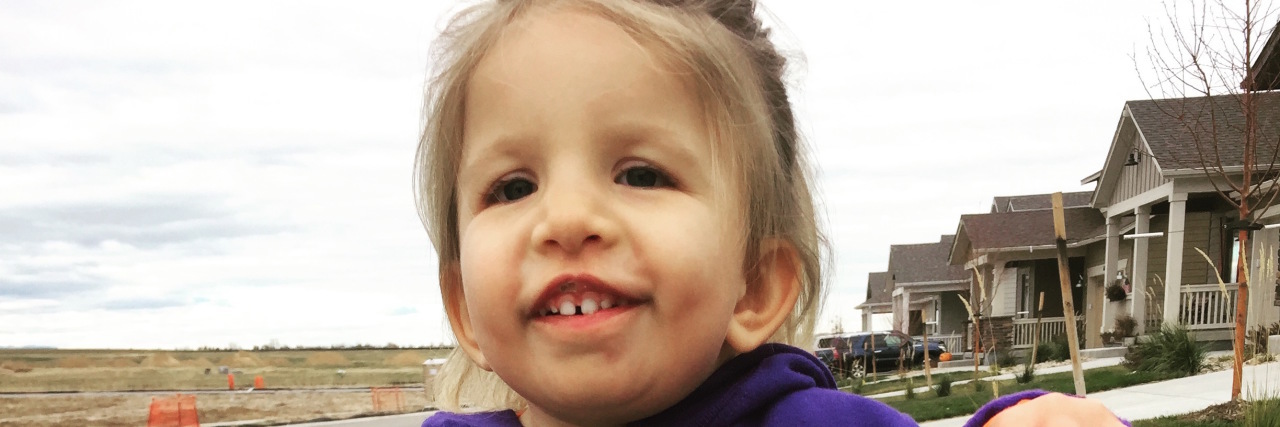Recently I spoke to my niece’s classmates about my daughter Lyra, and what it’s like raising a medically complex child. This group of 14 to 16-year-olds are discussing what it means to be human this semester, and did a small section on genetics and chromosome disorders. It was a perfect opportunity for me to speak to the students, and I am so grateful the school let me come in with my daughter. I gave them the rundown on Lyra’s genetic disorders, her long list of medical conditions, and spoke about what life has been the past two and a half years. I gave them the short version because I wanted to give them enough time to ask me whatever they wanted. The second question I was asked rocked me… and still is rocking me.
A student asked: “You said that when you were pregnant, you ‘didn’t know anything was wrong.’ Now that Lyra is here, do you see her as ‘something wrong’ or as an opportunity?”
I know I gave an answer, but I am sure it wasn’t a very good one. Almost two weeks later I am still processing this question and its implications. I have my knee-jerk reaction to it, but is that the whole truth? Here is my second (and more thought out) response to that question:
Is Lyra someone who is “wrong?” No. Are there things medically wrong with Lyra? Yes. I do not hold back about the fact that having a medically complex child can be really hard at times. It can be emotionally, mentally, and physically draining. I am her doctor, nurse, physical therapist, occupational therapist, speech therapist, case worker, and mother all at once and all of the time. While things medically wrong with her, it does not mean that she is somehow inherently “wrong.”
As I have stated in other posts, her medical conditions don’t define all of who she is. Yes, they are part of her, but they are a small part.
Is Lyra and opportunity? Yes and no. Let me explain the “no” part first. Lyra does provide the opportunity for others to learn about genetic disorders, disabilities, and medically complex people. However, that does not mean that she is simply a “teaching tool” to be placed on display, or a lesson to scare others about what can go wrong. That being said, Lyra has given us the opportunity to expand our lives and critically evaluate what is truly important. By “us” I mean everyone who comes in regular contact with her. Little milestones that would have simply passed us a by without much notice have become major celebrations. Every day with her is a little more valuable because we are so grateful she is still here. She seems to touch everyone around her, and helps them look at what is really important. As my niece said to her mom (my sister) one day, “Our lives are better because of Lyra.”
As her parent, my life may not be easier, but it is better. I believe I am a more patient, understanding, and empathetic person because of my daughter. It isn’t just things I have experienced directly with her either. Because of her, I have sought out other parents of children with disabilities and families with similar medical complications. Through them, I have learned so much about kindness, community, family, friendship, grief, loss, strength, and joy. Lyra has been an opportunity for others to learn about these things as well. I wouldn’t change who Lyra is now.
To the young man who asked me the question, I hope this is a better answer. “When I was pregnant, we didn’t know that the baby (Lyra) had two genetic disorders or other medical complications.” I believe this is much better than me responding, “We didn’t know anything was wrong.”
I often say, “Words have power, so choose wisely.” Your questions reminded me to be careful about how I present my story, so thank you for asking it.

